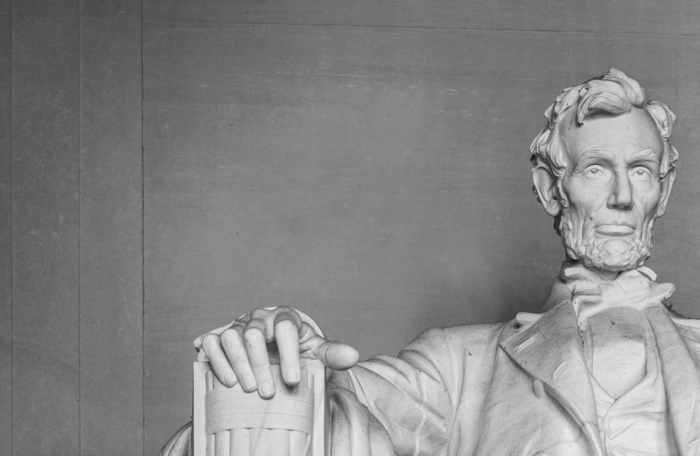For America, gratitude is foundational
Thanksgiving is a critically important American holiday. The reason is simple. The survival of the United States as an independent nation of free peoples depends upon gratitude.
If Americans do not remain forever grateful for the system we inherited, we will lose it.
If this sounds a bit dramatic, take it up with Abraham Lincoln.
Preserving America’s political institutions was an obsession of Lincoln’s.
His famous 1838 Lyceum Address, titled “The Perpetuation of Our Political Institutions,” marked the foundation of his political career.
“We, when mounting the stage of existence, found ourselves the legal inheritors of these fundamental blessings. We toiled not in the acquirement or establishment of them–they are a legacy bequeathed us, by a once hardy, brave, and patriotic, but now lamented and departed race of ancestors. Their’s was the task (and nobly they performed it) to possess themselves, and through themselves, us, of this goodly land; and to uprear upon its hills and its valleys, a political edifice of liberty and equal rights; ’tis ours only, to transmit these, the former, unprofaned by the foot of an invader; the latter, undecayed by the lapse of time and untorn by usurpation, to the latest generation that fate shall permit the world to know. This task of gratitude to our fathers, justice to ourselves, duty to posterity, and love for our species in general, all imperatively require us faithfully to perform.”
Gratitude was a theme of Lincoln’s throughout his life, which is why the word “posterity” appears so often in his speeches.
As he put it in his First Inaugural Address:
“The mystic chords of memory, stretching from every battle-field, and patriot grave, to every living heart and hearthstone, all over this broad land, will yet swell the chorus of the Union, when again touched, as surely they will be, by the better angels of our nature.”
Today, it would be a stretch to say that our politics are governed by the better angels of our nature. The nation Lincoln preserved is again strained by internal discord.
Forces that dwell deep within all of us — the desire to belong, to be a part of something larger than ourselves — are finding meaning in tribal affiliations that define themselves as apart from and in conflict with groups of other Americans.
For a people nurtured by rich instruction in our cultural inheritance, this would be little cause for worry. (It might not even exist.) But more and more American children are either not learning about their inheritance or are being taught to despise rather than treasure it.
The New Hampshire Historical Society warned two years ago that New Hampshire elementary students were showing an alarming decline in basic civics knowledge.
If a nation expects to be ignorant and free, in a state of civilization, it expects what never was and never will be,” Jefferson wrote in 1816. “If we are to guard against ignorance and remain free, it is the responsibility of every American to be informed.”
The good news is that Americans generally are a grateful people. A Pew survey in 2015 found that 78% of Americans feel a profound sense of gratitude on a weekly basis.
But are they grateful for being raised in a country that flourished by embracing free enterprise, self-reliance, personal responsibility, decentralized political power, and strong communities?
A lot of evidence suggests that they are not.
If you were lucky enough to attend last year’s Libertas Award Dinner with columnist and author Jonah Goldberg, you’ll remember his reminder that before we debate the merits of this or that change to our political order, it’s crucial to first be grateful for what the dynamic duo of capitalism and limited government have created — namely the wealthiest and happiest people in all of human history.
Every political discussion has to start from that basic understanding.
If you are grateful for having inherited the greatest economic and political systems ever devised by human beings, then you have one tremendous civic obligation.
Teach your children to be grateful too.




Unfortunately, Lincoln did not believe in the founding principle of voluntary union. In fact, he so strongly believed in forcible union, that he was willing to use military force to preserve the union, and in fact, killing people to force them to do his will was okay with him. In the end, hundreds of thousands of people lost their lives over the critical founding principles of states rights and voluntary union. Lincoln and the North were not lily white in their motives or actions. The south had good reason to resist Northern force. Today we are all paying the price of losing these two founding principles, voluntary union and states rights. The federal government has grown by leaps and bounds since that fateful time.